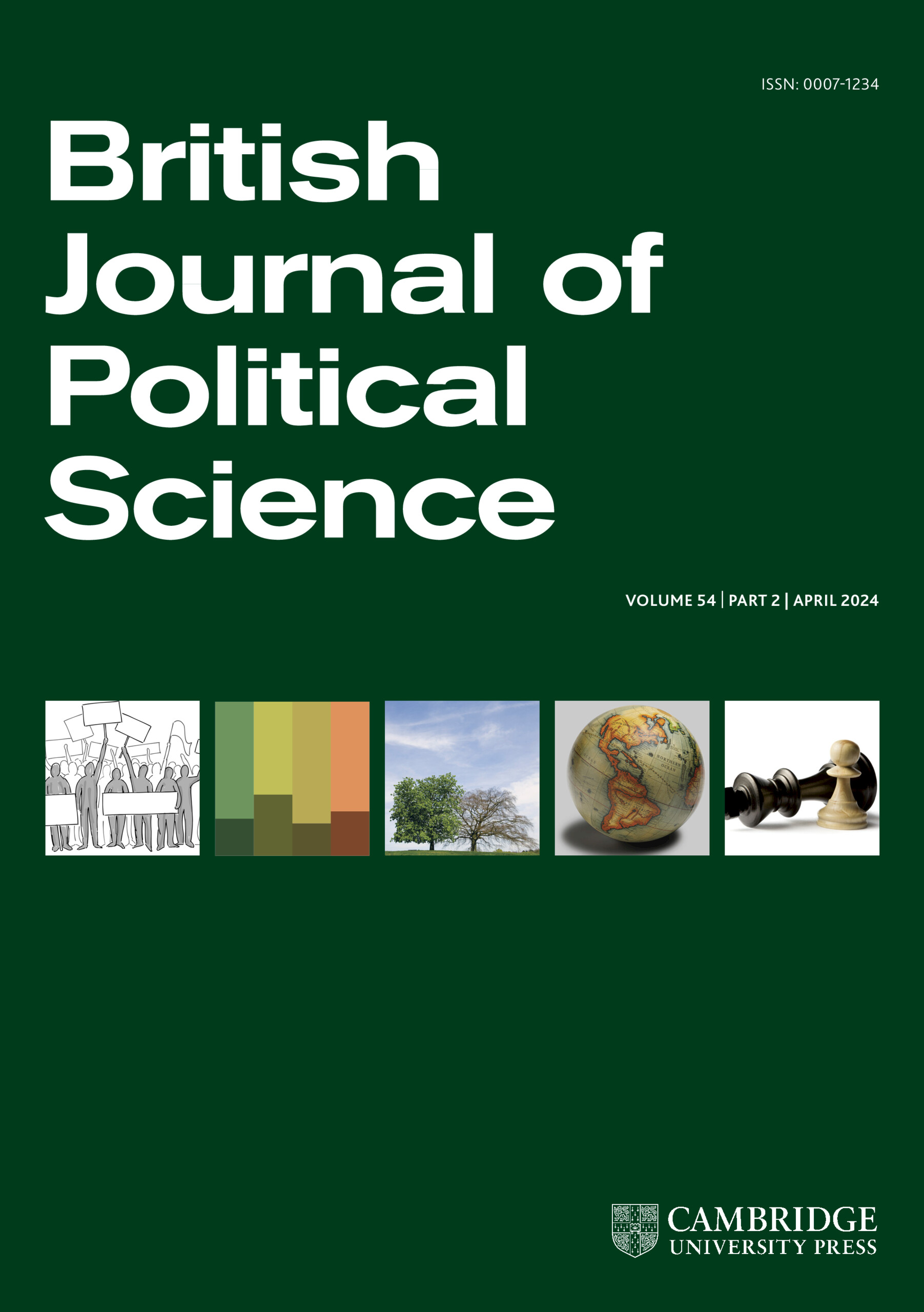Community Size and Electoral Preferences: Evidence From Post-Second World War Baden-Württemberg
IF 4.7
1区 社会学
Q1 POLITICAL SCIENCE
引用次数: 0
Abstract
We examine whether electoral preferences depend on a community's population size by studying post-Second World War Baden-Württemberg in Southwest Germany. Our identification strategy exploits the fact that the French administration zone prohibited German expellees from entering, contrary to the contiguous American zone. Population size positively predicts voting for the Social Democrats (the party advocating substantial government involvement in practically all domains) and negatively for the Christian Democrats (the small-government party advocating free-market policies). Results are neither driven by pre-existing voting patterns, religious compositions, and location- and time-specific unobservables, nor other measurable cultural, demographic, economic, or political characteristics. Alternative explanations pertaining to expellee voting behaviour or a backlash of natives against expellees appear unlikely – population size prevails as a predominant voting predictor.社区规模与选举偏好:第二次世界大战后巴登-符腾堡州的证据
我们通过对第二次世界大战后德国西南部巴登-符腾堡州的研究,考察了选举偏好是否取决于一个社区的人口规模。我们的识别策略利用了这样一个事实,即法国管理区禁止德国被驱逐者进入,而美国毗连区则相反。人口数量对社会民主党(主张政府大量介入几乎所有领域的政党)的投票有正向预测作用,而对基督教民主党(主张自由市场政策的小政府政党)的投票有负向预测作用。研究结果既没有受到已有投票模式、宗教构成、特定地点和时间的不可观测因素的影响,也没有受到其他可测量的文化、人口、经济或政治特征的影响。与被驱逐者的投票行为或本地人对被驱逐者的反弹有关的其他解释似乎不太可能--人口规模是主要的投票预测因素。
本文章由计算机程序翻译,如有差异,请以英文原文为准。
求助全文
约1分钟内获得全文
求助全文
来源期刊

British Journal of Political Science
POLITICAL SCIENCE-
CiteScore
8.70
自引率
4.00%
发文量
64
期刊介绍:
The British Journal of Political Science is a broadly based journal aiming to cover developments across a wide range of countries and specialisms. Contributions are drawn from all fields of political science (including political theory, political behaviour, public policy and international relations), and articles from scholars in related disciplines (sociology, social psychology, economics and philosophy) appear frequently. With a reputation established over nearly 40 years of publication, the British Journal of Political Science is widely recognised as one of the premier journals in its field.
 求助内容:
求助内容: 应助结果提醒方式:
应助结果提醒方式:


